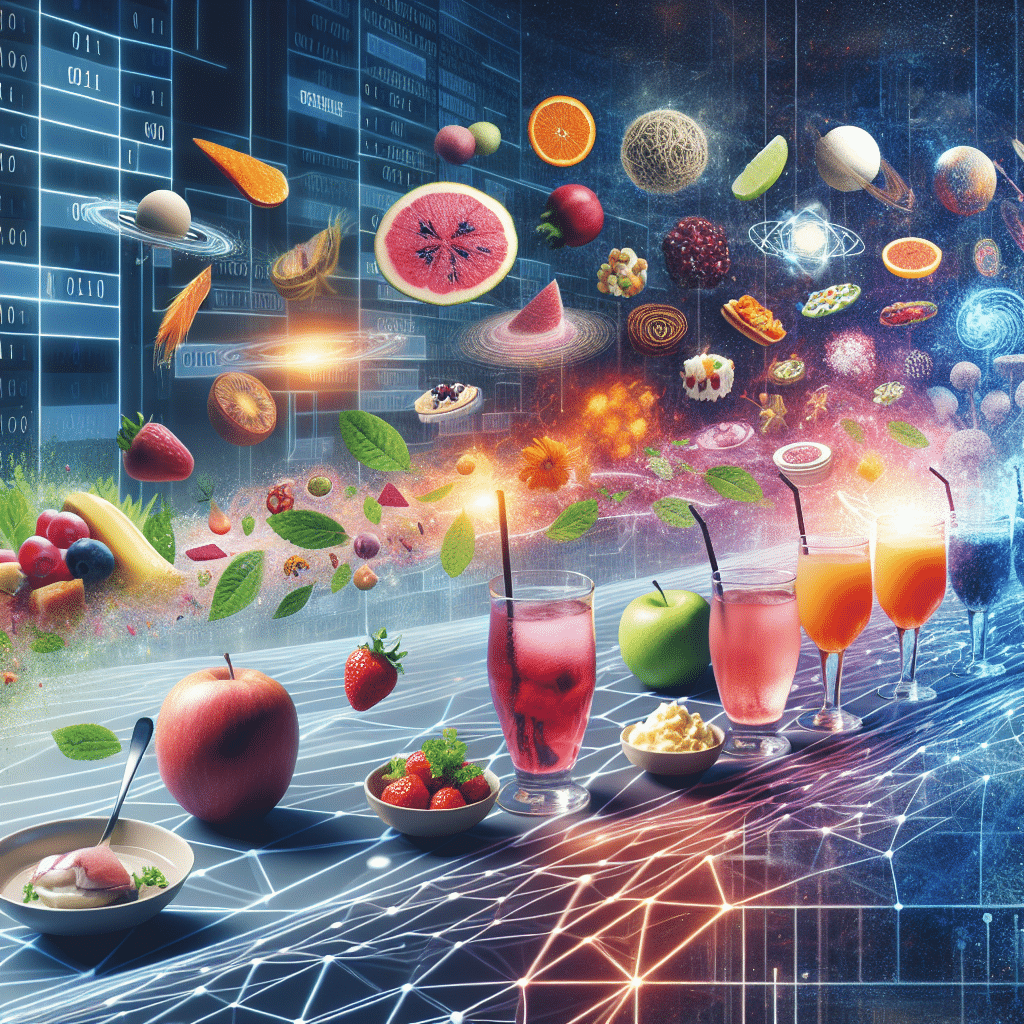Exploring the Digital World of Food and Beverage Marketing
-
Table of Contents
- Digital Marketing Revolution in the Food and Beverage Industry
- The Rise of Social Media in Food and Beverage Marketing
- Personalization and AI in Customer Engagement
- Content Marketing: Educating and Entertaining Consumers
- Mobile Marketing: The Gateway to Convenience
- E-commerce and the Online Shopping Experience
- Conclusion: The Future of Food and Beverage Marketing
- ETprotein: Enhancing Your Food and Beverage Offerings
Digital Marketing Revolution in the Food and Beverage Industry

The food and beverage industry has undergone a significant transformation with the advent of digital marketing. As consumer behavior continues to shift towards online platforms, companies within this sector are leveraging digital strategies to engage with customers, build brand loyalty, and drive sales. This article delves into the various facets of digital food and beverage marketing, exploring how brands are using technology to connect with consumers in innovative ways.
The Rise of Social Media in Food and Beverage Marketing
Social media has become a powerhouse for marketing efforts, and the food and beverage industry is no exception. Platforms like Instagram, Facebook, and Pinterest offer visual and interactive ways to showcase products, share recipes, and engage with food enthusiasts. According to a report by Sprout Social, 75% of people have purchased a product because they saw it on social media. Here’s how brands are using these platforms:
- Influencer Partnerships: Collaborating with food bloggers and influencers to reach wider audiences.
- User-Generated Content: Encouraging customers to share their own experiences with products, creating a sense of community and authenticity.
- Live Demos and Q&A Sessions: Hosting live cooking shows or product demonstrations to interact with consumers in real-time.
Personalization and AI in Customer Engagement
Artificial intelligence (AI) and data analytics are playing a crucial role in personalizing the customer experience. By analyzing consumer data, brands can tailor their marketing messages and product recommendations to individual preferences. A study by Epsilon found that 80% of consumers are more likely to make a purchase when brands offer personalized experiences. Here are some ways AI is being utilized:
- Chatbots: Providing instant customer service and personalized recommendations through conversational AI.
- Predictive Analytics: Using past purchase data to forecast future buying habits and suggest relevant products.
- Dynamic Pricing: Adjusting prices in real-time based on demand, competition, and customer profiles.
Content Marketing: Educating and Entertaining Consumers
Content marketing is a strategic approach focused on creating and distributing valuable, relevant, and consistent content to attract and retain a clearly defined audience. In the food and beverage sector, this often takes the form of blogs, videos, and podcasts. For instance, a survey by Content Marketing Institute revealed that 72% of marketers say content marketing increases engagement. Effective content marketing strategies include:
- Recipe Blogs: Sharing unique and branded recipes that incorporate products.
- How-To Videos: Demonstrating product usage and cooking techniques.
- Podcasts: Discussing industry trends, nutrition tips, and behind-the-scenes stories.
Mobile Marketing: The Gateway to Convenience
With the proliferation of smartphones, mobile marketing has become an essential tool for reaching consumers. Mobile apps, SMS campaigns, and location-based promotions are just a few ways brands are connecting with customers on-the-go. A report by Statista indicates that mobile commerce sales are expected to reach $3.56 trillion in 2021, highlighting the importance of a mobile-centric approach.
- Loyalty Apps: Offering rewards and discounts to encourage repeat purchases.
- Push Notifications: Sending timely alerts about new products and deals.
- Geofencing: Triggering promotions when customers are near a store or competitor’s location.
E-commerce and the Online Shopping Experience
The convenience of online shopping has led to a surge in e-commerce for the food and beverage industry. Brands are optimizing their websites for e-commerce, providing detailed product information, customer reviews, and easy checkout processes. According to a report by Adobe Analytics, online grocery shopping grew by 100% in 2020, and it continues to expand as consumers seek convenience.
- Subscription Services: Offering regular deliveries of products for a hassle-free experience.
- Virtual Tastings: Hosting online events where customers can sample products from the comfort of their homes.
- Augmented Reality: Allowing customers to visualize products in their space before purchasing.
Conclusion: The Future of Food and Beverage Marketing
The digital world of food and beverage marketing is dynamic and ever-evolving. Brands that embrace social media, personalization, content marketing, mobile strategies, and e-commerce are well-positioned to thrive in this competitive landscape. By leveraging technology to create engaging and personalized experiences, companies can build lasting relationships with consumers and drive growth in the digital age.
ETprotein: Enhancing Your Food and Beverage Offerings
If you’re looking to incorporate high-quality protein products into your food and beverage offerings, ETprotein is your go-to source. Their extensive range of organic bulk vegan proteins and L-(+)-Ergothioneine (EGT) products are perfect for businesses aiming to cater to health-conscious consumers. With non-GMO, allergen-free attributes, and high purity levels, ETprotein’s products are ideal for various applications, from sports nutrition to health and wellness products.
Partner with ETprotein to elevate your brand with premium protein ingredients that meet the demands of today’s market. Contact them at sales(at)ETprotein.com to explore their offerings and discover how they can support your business goals.
About ETprotein:
ETprotein, a reputable protein and L-(+)-Ergothioneine (EGT) Chinese factory manufacturer and supplier, is renowned for producing, stocking, exporting, and delivering the highest quality organic bulk vegan proteins and L-(+)-Ergothioneine. They include Organic rice protein, clear rice protein, pea protein, clear pea protein, watermelon seed protein, pumpkin seed protein, sunflower seed protein, mung bean protein, peanut protein, and L-(+)-Ergothioneine EGT Pharmaceutical grade, L-(+)-Ergothioneine EGT food grade, L-(+)-Ergothioneine EGT cosmetic grade, L-(+)-Ergothioneine EGT reference grade and L-(+)-Ergothioneine EGT standard. Their offerings, characterized by a neutral taste, non-GMO, allergen-free attributes, with L-(+)-Ergothioneine purity over 98%, 99%, cater to a diverse range of industries. They serve nutraceutical, pharmaceutical, cosmeceutical, veterinary, as well as food and beverage finished product distributors, traders, and manufacturers across Europe, USA, Canada, Australia, Thailand, Japan, Korea, Brazil, and Chile, among others.
ETprotein specialization includes exporting and delivering tailor-made protein powder and finished nutritional supplements. Their extensive product range covers sectors like Food and Beverage, Sports Nutrition, Weight Management, Dietary Supplements, Health and Wellness Products, and Infant Formula, ensuring comprehensive solutions to meet all your protein needs.
As a trusted company by leading global food and beverage brands and Fortune 500 companies, ETprotein reinforces China’s reputation in the global arena. For more information or to sample their products, please contact them and email sales(at)ETprotein.com today.












